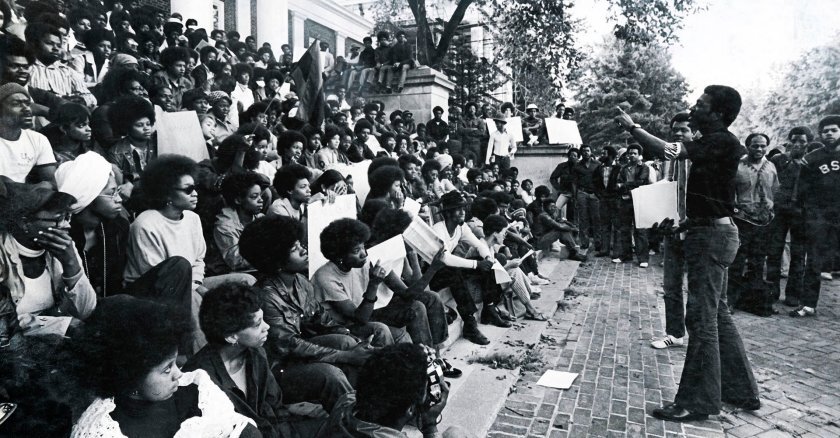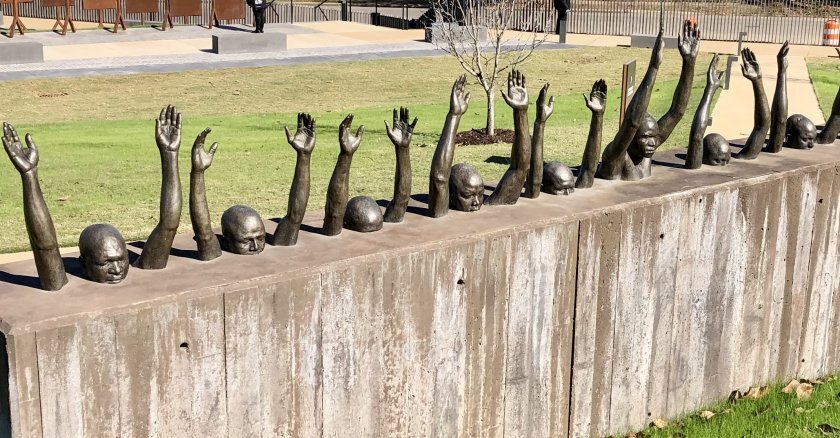Public officials committed to governing effectively will have to do a much better job of understanding the importance of race and how it continues to play a role in almost all facets of society.
This begins with accurately defining the term "race." Most reputable biologists, geneticists and social scientists tell us that race is a social construct, not a genetic or biological fact. As Michael Yudell, a professor of public health at Drexel University, put it in 2016, race is a concept that “is too crude to provide useful information” and one “that has social meaning that interferes in the scientific understanding of human genetic diversity.”
More than a century earlier, W.E.B. Du Bois, one of America’s most acclaimed sociologists, expressed concern that race was being used as a biological explanation for what he understood to be social and cultural differences. Many admirers of his seminal 1903 book, The Souls of Black Folk, repeat his much-quoted statement on race: “The problem of the 20th century is the problem of the color line.” But they ignore the conclusions in his more scholarly 75-page essay, “Black Reconstruction in America”, where he argued that “color caste” and racism are “founded and retained by capitalism.”
If race and racism are socially constructed to justify and support economic and social subjugation, then the pathway to solving problems such as police brutality, voter suppression, economic inequality, fear of demographic shifts and a host of other issues requires an entirely different mindset and navigational approach.
Let’s begin with discussing one of the most significant demographic changes now underway: the prospect of whites becoming a minority in the U.S. by the middle of this century. The Census predicts that Americans who self-identify as white will make up less than half of the population by 2045. At the same time this is happening, the population of Americans who identify as people of color or of two or more races is growing rapidly. Nonwhite Hispanics will soon be a quarter of the U.S. population.
The fear by whites of becoming a minority is real and ought to be discussed and dealt with rationally. All my life I have been a minority. The worst part of it was the barriers and obstacles to success placed in my way by the dominant race. I believe we have grown in our understanding of the rights of minorities so as not to make those mistakes again.
But while people of color may collectively be in the American majority by 2045, that does not guarantee that they will control the economic and social institutions of society. Nor does it mean they will form political alliances based solely on the color of their skins.
If we somehow were able to convince more working-class and middle-class whites that their interests rest more on real economic security and access to opportunity than on race, perhaps those in power could not try to divide and conquer to the extent that they do now. Even worse, those same leaders are failing to deliver economic security for American workers of all races and classes, except for the very rich, and they often gaslight, scapegoat and blame minorities and immigrants from Mexico and Central America for the failures of the U.S. economy. Minorities do not set spending priorities, the tax code, the economic policies or the social agenda that we live under.
Those who seek to divide us seem dead-set on using wedge issues like access to voting; abortion; transgender rights; the teaching of Black studies; and whether books on race, ethnicity and gender should be banned to fire up their base of conservative white working-class voters. Sadly, too many whites who have lost ground economically under both Democratic and Republican administrations believe the racist propaganda.
As we inch closer to next year’s national elections, and as announced and potential presidential candidates like former President Donald Trump, Florida Gov. Ron DeSantis and former U.N Ambassador and South Carolina Gov. Nikki Haley trot out racial tropes to divide voters, I hope the public and campaign contributors will roundly reject them. We should demand that they do. The bar needs to be raised also for mainstream and social media entities that knowingly or unknowingly normalize racism by praising governors and secretaries of state who deny Trump’s big lie about a stolen election but nevertheless support a host of other racist and anti-democratic legislative actions.
Above all, religious leaders of all faiths have a moral imperative to forcefully speak out against elected officials, candidates and media pundits who use racist dog whistles to divide our nation. Too often, unfortunately, the opposite is true. Religious leaders’ silence and sometimes open support for extreme right-wing candidates who appeal to racial fears is baffling and difficult to square with most religious teachings.
At the end of the day, Blacks and other minorities want from society and government the same things that whites want: economic security and opportunity, safe streets, great schools, respect and human dignity. Scientists and scholars like Du Bois have told us that race exists as only a social construct. It is time now to deconstruct race and its economic and political implications and motives to raise up the “beloved community” that Martin Luther King Jr. urged us to build more than six decades ago.
Governing's opinion columns reflect the views of their authors and not necessarily those of Governing's editors or management.
Related Content














